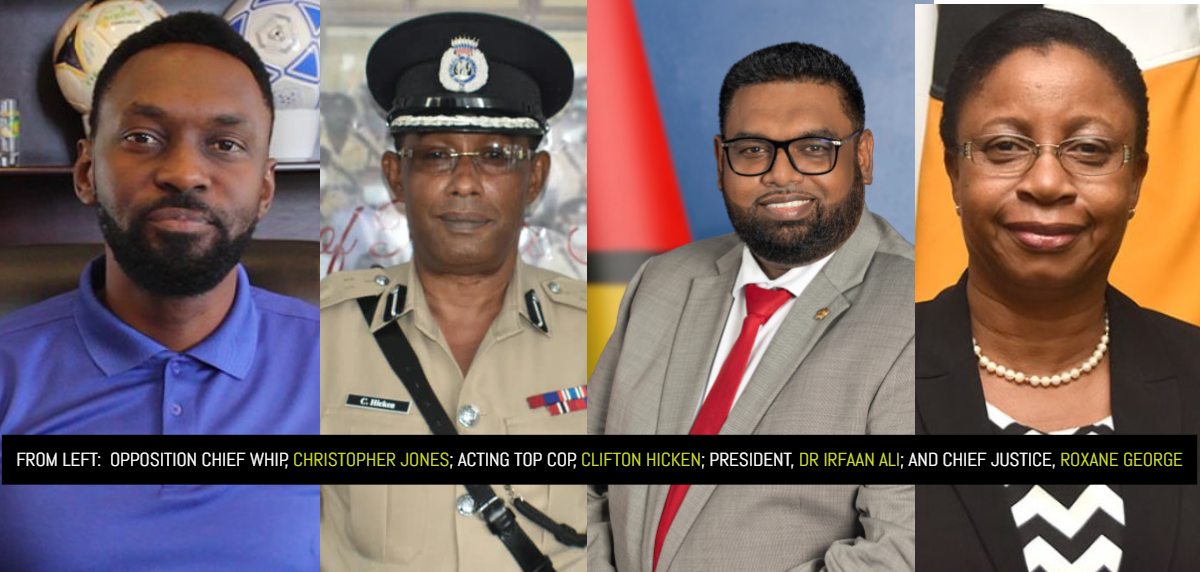As promised, the main Parliamentary Opposition, led by its Chief Whip, Christopher Jones, has moved to the Appeal Court to have a ruling on the appointment of Clifton Hicken as the acting Commissioner of Police overturned.
Last week, Acting Chief Justice (CJ), Madam Roxane George, ruled that President Dr Irfaan Ali’s unilateral appointment of Hicken was lawful, despite the deviation from the constitutional requirement which specifies that the appointment is to be made after meaningful consultation with the Opposition Leader.
The CJ, in her ruling, said that the appointment made by President Ali’s “own deliberate judgement” was constitutional because there was no Opposition Leader and Police Service Commission (PSC) at the time.
In the appeal document seen by this publication, Jones, through his lawyers, said that he was dissatisfied with the whole decision.
The document lists the grounds of appeal, which includes the following:
(a) The Learned Chief Justice (ag.) erred in law when she held that the President of Guyana was vested with the authority to make an acting appointment to the office of Commissioner of Police under Article 111 of the Constitution of Guyana.
(b) The Learned Chief Justice (ag.) erred in law when she found that the President of Guyana could have acted out of necessity and exercised his own deliberate judgment pursuant to Article 111 of the Constitution to make an appointment for a person to act in the office of Commissioner of Police.
(c) The Learned Chief Justice (ag.) erred in law when she found that there was no material difference between an appointment to act in the office of the Commissioner of Police and an appointment to perform the functions of the office of the Commissioner of Police.
(d) The Learned Chief Justice (ag.) erred in law when she misconstrued Article 232 (2) of the Constitution and found that the terms “to appoint a person to act or to perform the functions of that office…” were used interchangeably and not disjunctively.
(e) The Learned Chief Justice (ag.) erred in law when she did not direct her mind properly to Article 232 (2) of the Constitution which provides that the terms of Article 232 (2) of the Constitution were only applicable “unless it was otherwise provided or required by the context” and that in the circumstances of the instant case the Constitution did expressly otherwise provide or require by its context that the President’s power to appoint a person to the office of Commissioner of Police to act was conditional on meaningful consultation as required by Articles 211 and 232 of the Constitution.
Please see full document below:
File Name: Christopher-Jones-v.-Attorney-General-et-al.docx













